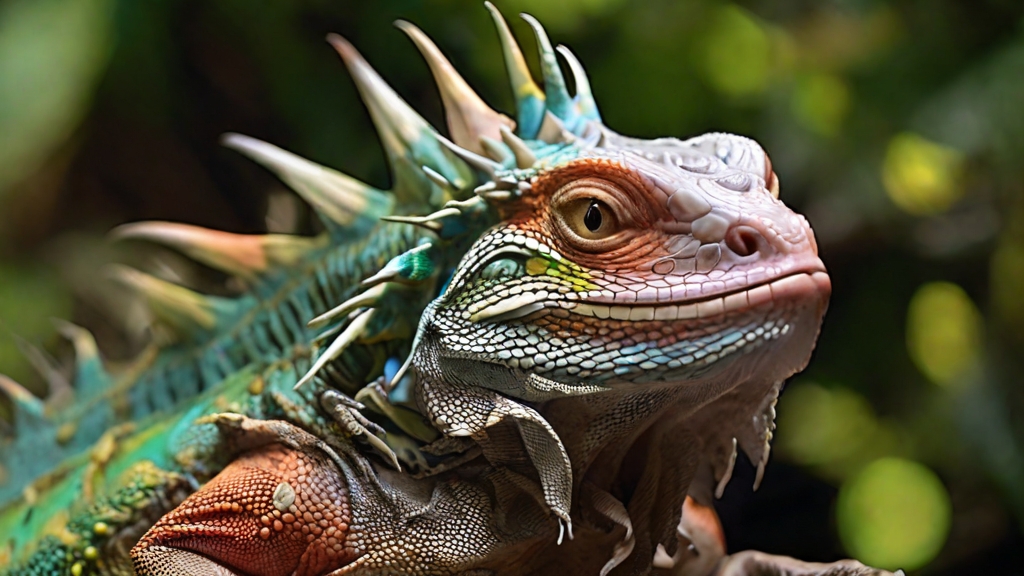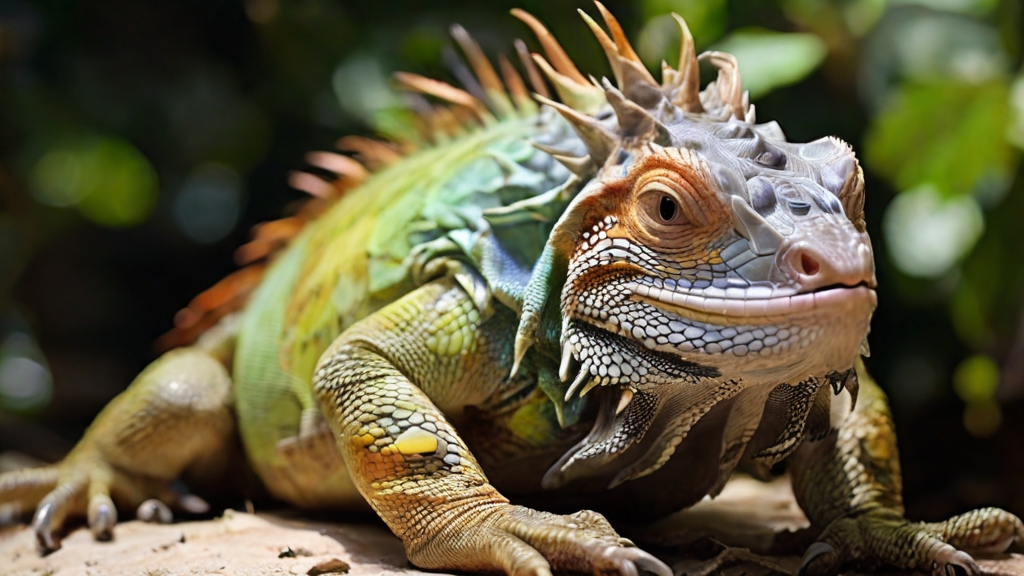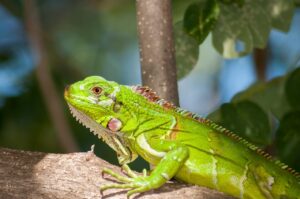Iguanas are popular pets due to their exotic appearance and relatively low maintenance compared to other reptiles. However, it is important to carefully consider the specific diet and nutrition requirements of iguanas to ensure they are healthy and well-cared for.
In this article, we will explore the topic of “what do iguanas eat as pets?” and discuss the importance of feeding iguanas a varied and nutritionally balanced diet.
General Information about Iguanas
Iguanas are a type of large reptile native to Central and South America. They are known for their distinctive appearance, with long, spiny tails and sharp claws and teeth. Iguanas can grow to be quite large, with some individuals reaching up to 6 feet in length.
Iguanas are generally docile and do not require much attention or interaction. They are content to spend most of their time basking in the sun or exploring their enclosure.
They are also relatively low maintenance compared to other pets, as they do not need to be taken for walks or have their litter changed, and they can go a few days without food if necessary.
What Do Iguanas Eat as Pets?
When it comes to the diet of iguanas as pets, it is important to provide them with a varied and nutritionally balanced diet. Iguanas are herbivorous, which means they primarily eat plant-based foods. A typical iguana diet should consist of the following:
- Leafy greens: Iguanas should be fed a variety of leafy greens, such as collard greens, mustard greens, turnip greens, and dandelion greens. These should make up the majority of the iguana’s diet, as they provide a good source of vitamins, minerals, and fiber.
- Fruits: Iguanas can also be fed a small amount of fruit, such as apples, berries, mangoes, and papayas. Fruits should be fed in moderation, as they are high in sugar and can lead to weight gain if fed in large quantities.
- Vegetables: Iguanas can be fed a variety of vegetables, such as bell peppers, broccoli, carrot and zucchini. These should be fed in moderation, as they are lower in nutrients compared to leafy greens.
- Calcium supplement: It is important to provide your iguana with a calcium supplement to support healthy growth and development. This can be provided in the form of a calcium powder that is sprinkled on the food or as a calcium block that the iguana can lick as needed.
- Avoid high-fat and high-protein foods: It is important to avoid feeding your iguana high-fat or high-protein foods, such as meat, dairy products, and processed foods. These can lead to health problems, such as kidney disease and obesity.
Why is it Important to Feed Iguanas Correctly?
Proper nutrition is essential for the overall health and well-being of iguanas. A nutritionally balanced diet can help prevent common health problems, such as obesity, kidney disease, and metabolic bone disease.
It is also important to provide your iguana with a consistent and varied diet to ensure they are getting all the nutrients they need. Iguanas can be picky eaters, so it is important to offer them a variety of foods toensure they are getting all the nutrients they need.
Iguanas can be picky eaters, so it is important to offer them a variety of foods to encourage them to eat a balanced diet.
Failure to provide your iguana with a nutritionally balanced diet can lead to serious health problems, such as malnutrition, stunted growth, and decreased lifespan.
It is important to consult with a veterinarian or reptile nutrition expert to ensure you are providing your iguana with the proper nutrition.
Conclusion
In conclusion, it is important to provide iguanas with a varied and nutritionally balanced diet to ensure their overall health and well-being.
A typical iguana diet should consist of a variety of leafy greens, fruits, vegetables, and a calcium supplement, with a focus on low-fat and low-protein foods.
It is important to carefully consider the specific dietary needs of iguanas and to consult with a veterinarian or reptile nutrition expert for guidance.
What do iguanas eat as pets? By following these guidelines and providing your iguana with a varied and nutritionally balanced diet, you can help ensure your iguana stays healthy and happy.




